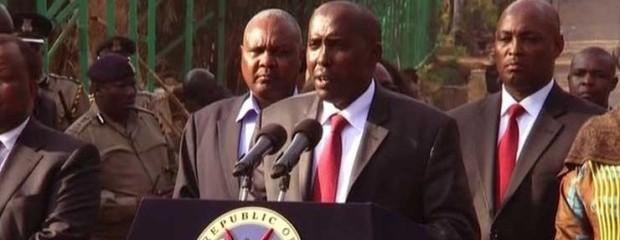Converting resource wealth to economic development: what role for “˜local content’? – By Peter Dí¶rrie


‘Local content’ is the holy grail for African governments seeking to turn abundant resources into equitable growth.
Few topics were debated as intensively at the recent International Economic Forum on Africa in Paris as the question of local content in the oil and mining industry. Local content is commonly understood as the share of materials, parts, etc. for the production of a given product that has been produced locally (instead of imported.)
For many African governments, it is the holy grail of economic policy: by finding ways to make investors procure more services, labour and materials from local businesses, the reasoning goes, their countries will benefit from resource endowments multiple times. The investors in turn seem to have accepted the concept of local content as important, but are mainly interested in limiting its potentially negative effects on their line of business.
Mozambican vice-minister of mineral resources Abdul Razak Noormahomed set the tone for the debate when he declared: “We want to increase the local content, because we want as much as possible small and medium level companies to be part of the business, providing goods and services to the big companies. And we are asking the support not only of the international organisations, but also from the companies in order to support our small and medium level enterprises.” Noormahomed went on to underline the need for technical and financial capacity building as areas where international investors are expected to support Mozambican businesses.
It is easy to understand why the government of Mozambique and many of its African peers are putting such emphasis on local content. It is one possible answer to the perennial question of how to convert resource wealth into an actually wealthy population, something most African countries have so far struggled with. It is also a policy compatible with the neo-liberal consensus of international economic regulations: While the World Bank and IMF would probably balk at attempts at outright protectionism for local industries, and investors generally react badly to attempts to increase government’s direct share of profits, local content currently remains a largely accepted practice.
Investors seem to have accepted the demand for higher local content in general, but are intent on limiting its financial consequences on their bottom lines. Carlos Costa Pina of the Portuguese oil and gas corporation Galp underlined the need to deliver projects “on time and on budget”, even in the context of local content. Arturo Gonzalo Aizpiri of Repsol went a bit further in displaying his scepticism towards local content, arguing that while “we have to do all we can to make sure that the local society is benefitting from our activities, that can not be mistaken with trying to protect inefficient sectors or companies.”
This is actually a point most people at the conference could agree on in principle, but conflicts of interests are guaranteed on the question of how to interpret this statement. After all, if local companies were already competitive, there wouldn’t be a need for a local content policy at all. To be meaningful as a policy to secure a greater transfer of wealth to entrepreneurs and workers in developing countries, it will have to include some form of short-term subsidy to make these businesses more competitive.
It should be pointed out that local content policies are by no means a recent invention. According to a study published by the World Bank, local content has made it on the policy agenda in the early 1970s in the context of oil exploitation in the North Sea. Interestingly, the paper goes on to attest the various policies enacted since have achieved only “mixed results”.
One African country studied in-depth by the World Bank is Angola, which had local content policies in place for at least three decades. These have been at least partially effective in their stated goals, namely the diversification of the local oil industry, which has taken over some specialist services, like drilling, from foreign companies. But these successes on paper have not translated in any meaningful redistribution of wealth in the wider Angolan society, as a look at the country’s development indicators makes clear. On the contrary, in Angola one could argue that, local content policies may have contributed to the enrichment of a small elite and the consolidation of its power.
Quite a few African countries, including Mozambique, Ghana, Uganda and Kenya are currently at the beginning of their journey as oil and gas exporting countries. All of them are actively exploring local content as one of the main policies to ensure that their local economies benefit from the exploitation of natural resources. All of them should be realistic about what local content policies can actually be expected to deliver and the difficulties of getting them right.
Peter Dí¶rrie is a freelance journalist reporting on security, politics and development in Africa. He tweets as @PeterDoerrie.





